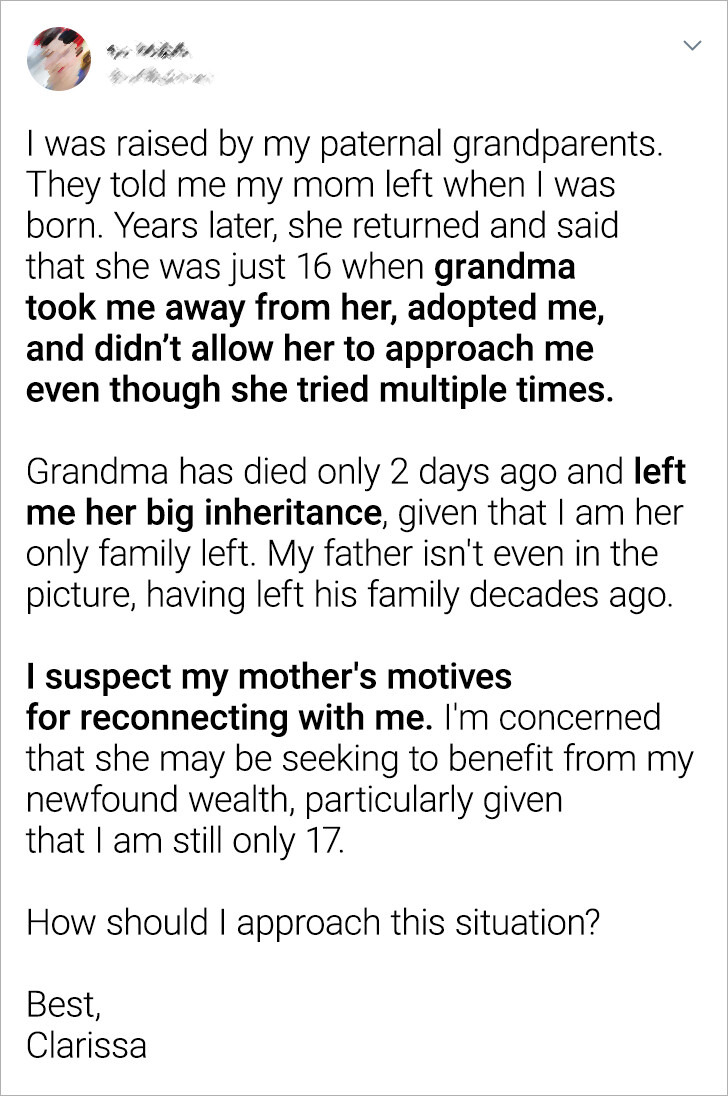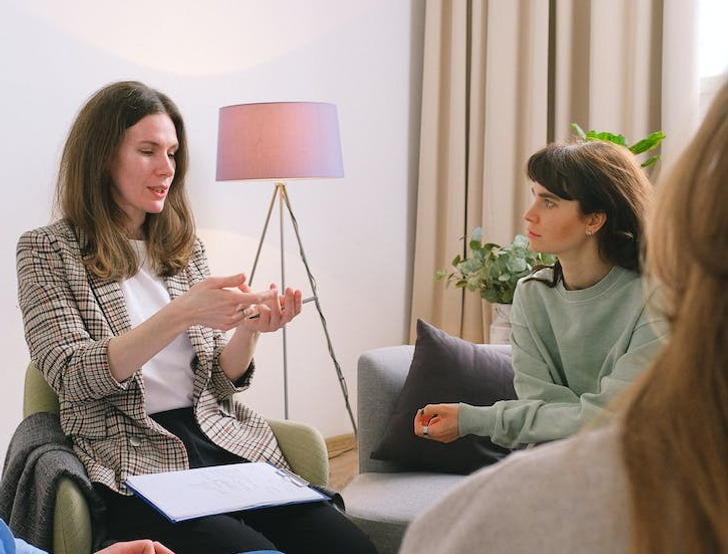In just a matter of seconds, a few words have the power to shatter all our beliefs about life and our past. This is precisely what happened to 17-year-old Clarissa when her birth mother approached her after all these years. Clarissa had always believed she was abandoned at birth, but her mother presented a completely different reality. However, Clarissa has deep reasons to doubt her.

Clarissa’s letter.

Thank you for sharing your story with us, Clarissa! Here are a few tips we hope can assist you in making a decision.
Verify intentions through actions.

While skepticism is understandable given the timing of your mother’s reappearance, consider giving her an opportunity to prove her sincerity through her actions over time. Observe how she behaves and whether her actions align with her words.
Genuine efforts to reconnect will likely involve consistent attempts to establish a meaningful relationship with you beyond any material gain. Pay attention to her willingness to invest time and effort into rebuilding your bond, rather than solely focusing on the inheritance.
Investigate family history.

Take the time to gather more information about your family’s history and dynamics from trusted sources, such as other relatives or family friends who may have insights into past events or old family records and albums.
This can help you gain a clearer understanding of the circumstances surrounding your separation from your mother and the role your grandparents played in raising you.
Protect your interests.

While it’s important to approach the situation with an open mind, it’s also crucial to protect your own interests and well-being. Take practical steps to safeguard your inheritance and financial assets, such as consulting with a trusted legal advisor or financial planner.
Also, establish boundaries and communicate your expectations clearly with your mother, ensuring that any involvement in your life is based on genuine intentions rather than ulterior motives. Remember that prioritizing your own emotional and financial security is not selfish, but rather a necessary step in navigating complex family dynamics and relationships.
Seek mediation.

Given the complexity and emotional weight of the situation, consider involving a professional mediator or therapist. They can help facilitate open and honest communication between you and your mother, allowing both parties to express their feelings and concerns in a neutral and safe environment.
A mediator can also help you navigate through the conflicting emotions and doubts you may be experiencing, providing valuable insights and guidance as you decide how to move forward.
Here’s another story of a girl being raised by her grandparents. This time, it’s from the perspective of the grandmother, who now refuses to allow her granddaughter to meet her birth mother. Find out why.